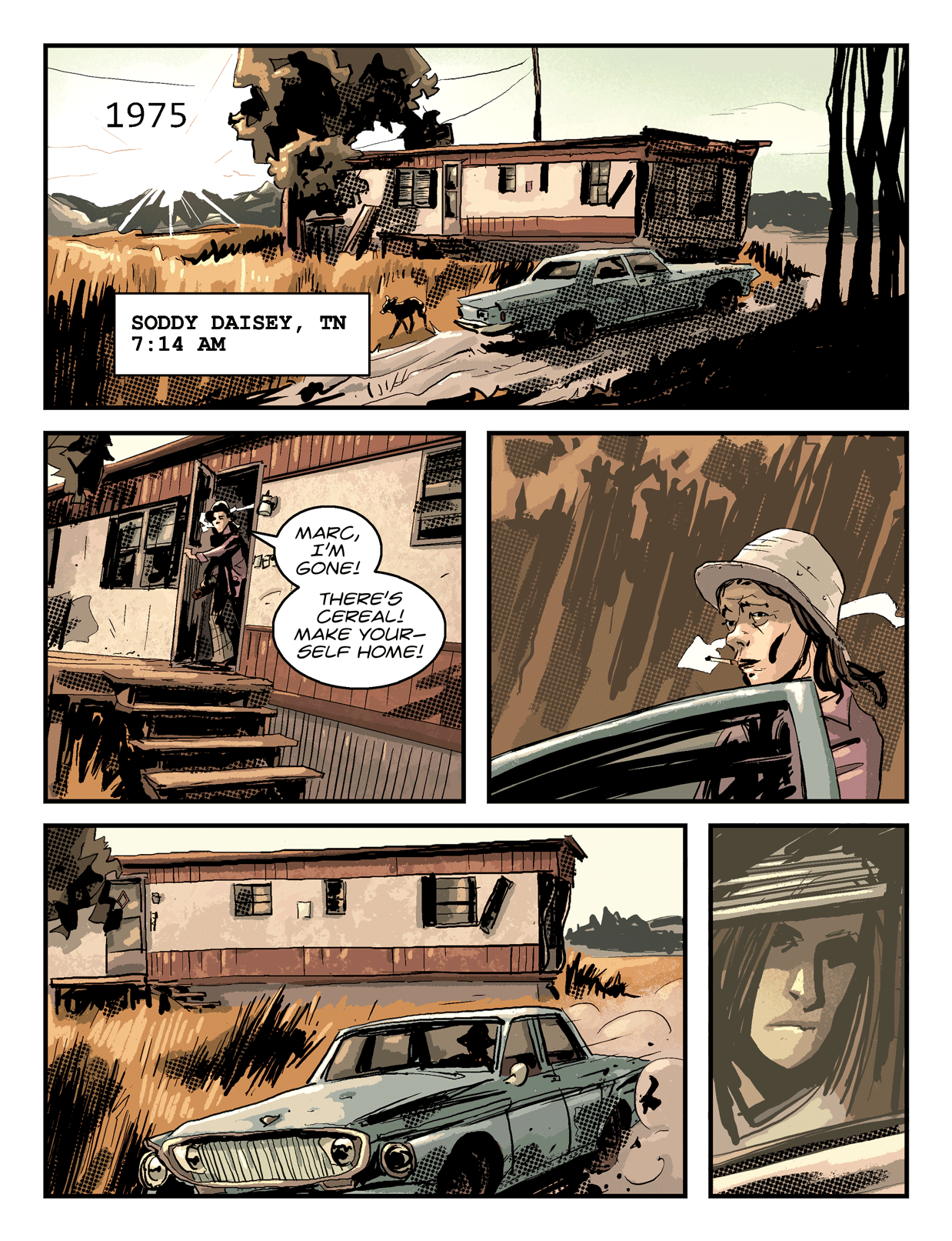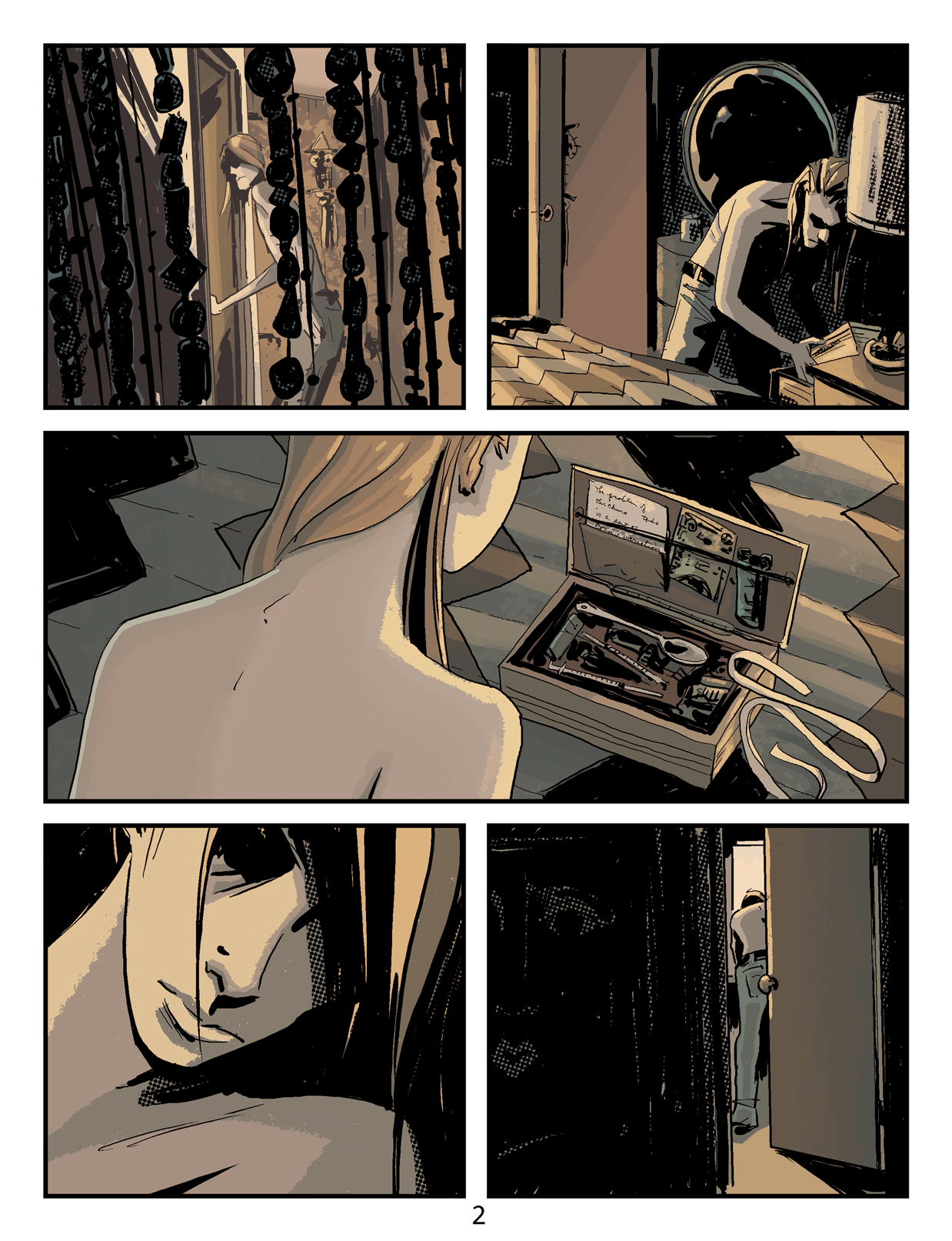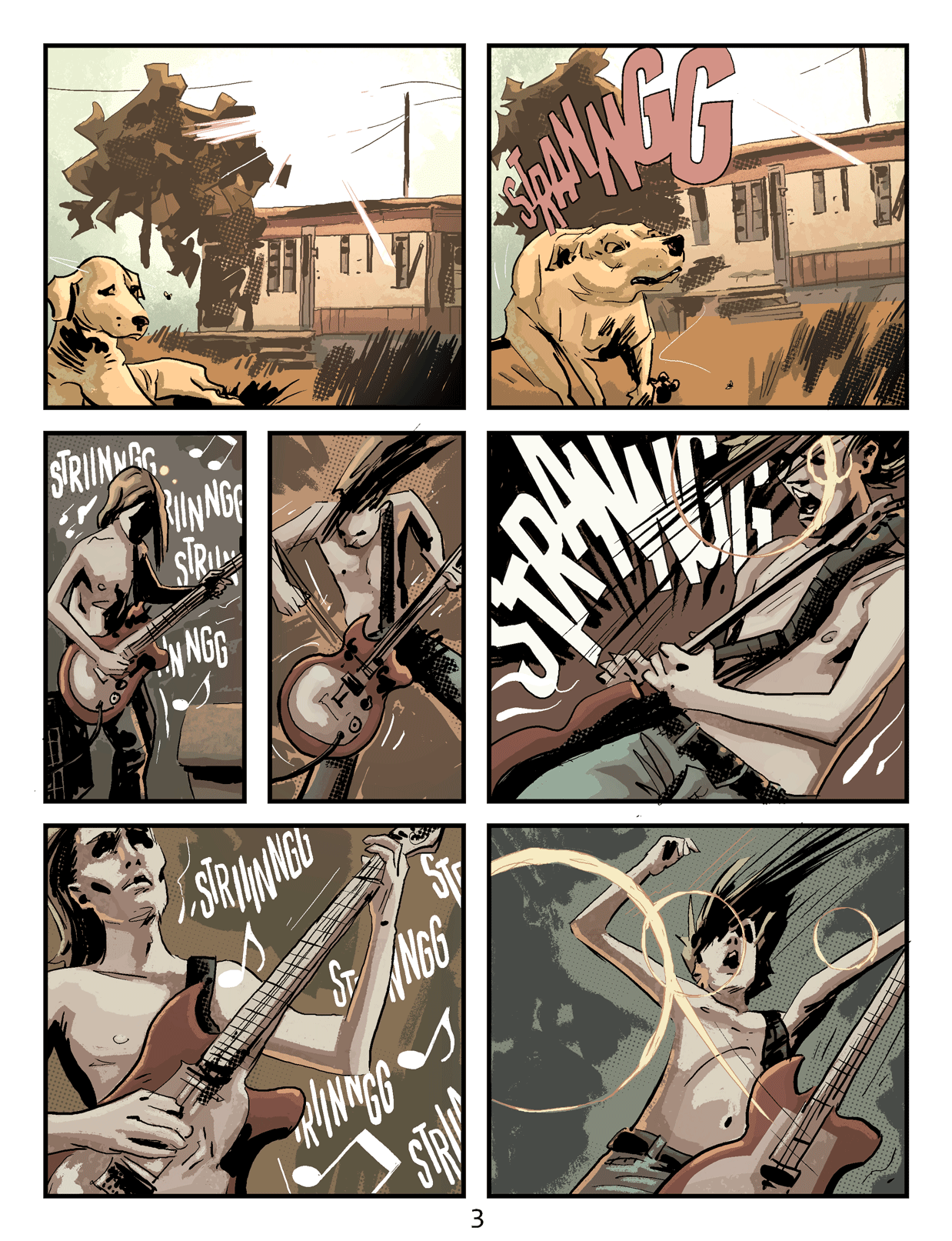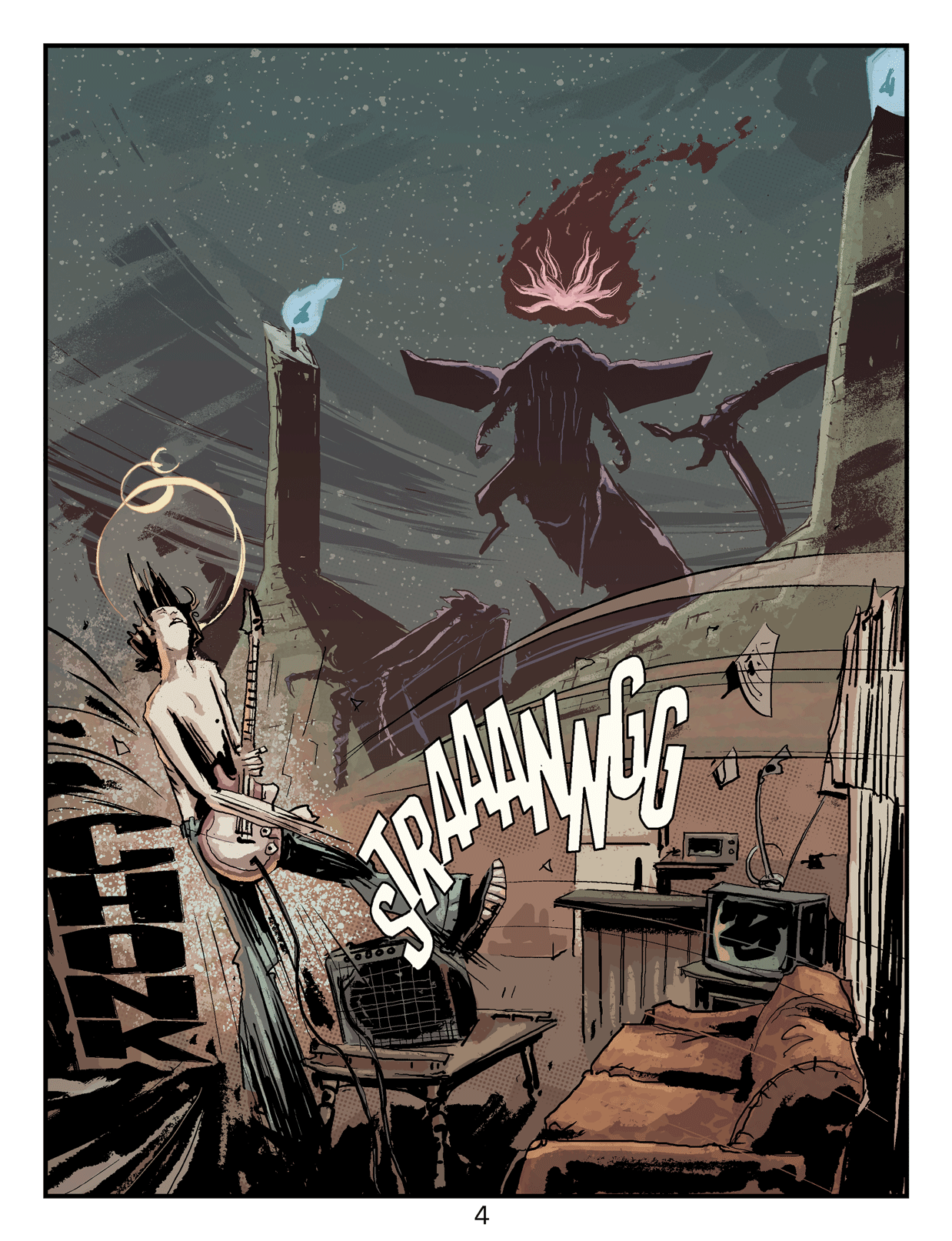



As the focus of the government’s most frantically assembled response and the discoverer of staggering truths about human potential, no one would have ever guessed that it all began with the stale persona of Dr. Conley Chislom. Those who interacted with him closely did so only out of occupational obligation. It was Chislom’s pretentiousness that was most galling, and many found it implausible that such a contrived person could secure a position as department head for an affluent pharmaceutical company. In truth, Eckl Pharmaceuticals’ devotion to its disfavored employee ran deep for reasons undisclosed to the public.
A tall man, Chislom spoke in a booming voice that would escalate without particular need. Many of his underlings were reticent to converse with him in person, preferring the distant exchange of the interoffice phone. Chislom also had a tendency to open his mouth as wide as possible when talking. This odd manner of speaking had a way of accentuating the pomposity of his personality. A man of 60, Chislom never married and rarely met someone willing to date him, though for much of his 50s, he kept company with one of the governor of Georgia’s clerical staff – a curt woman with her own unique set of interpersonal foibles.
In 1959, on his 59th birthday, Chislom had accompanied his curt clerk to a holiday party at the governor’s mansion. After the festivities, his date’s long-standing impatience cracked, and the couple had their first (and last) honest conversation. During their discussion, the clerk had asked Chislom if he had any real intention of marrying her, and when Chislom said he did not, their relationship immediately concluded. He had been saddened at the breakup, but not because he lost the girl. Chislom had regretted losing the association with such a high and venerated office (as thin as it was).
By 1960, Chislom found himself living alone in his large antebellum home poised near the center of Decatur, outside the larger city of Atlanta. His elderly mother finally found it necessary to conclude her long haunt of the large estate and died at the beginning of that year, leaving her only son without the semblance of family life that had barely enchanted his adjourned clerk. He found prestige in his position as a biopharmaceutical researcher and assisted his employer during the unprecedented drug consumerism that got its start in the 1950s. In short order, he began administering as a department head in a very robust company and was eventually urged to take on an assistant. After what was probably an insufficient number of one-on-one interviews with potential assistants, Chislom saw past the awkward presentation of Reginald Seabolt and took the thin young man on as his research assistant. The consensus of Eckl Pharmaceuticals’ staff was that Seabolt’s own ineptitude at the art of society landed him with the position. After all, Chislom’s ostentation and Seabolt’s timidity related well to one another. Unlike Chislom, Seabolt’s sense of self did not benefit from any ill-placed conceit whatsoever, and the young man’s lack of confidence was painfully visible to all. Loneliness and the human requisite for companionship floundered the men together, and Chislom gradually fell into a fatherly role in the younger man’s life. By the conclusion of the year, the two were quite close outside of work, with Seabolt often spending his evenings at Chislom’s home for billiards and beer. Though their days were spent developing pharmaceuticals for use as medications, the two scientists’ personal interests, however, began to veer into completely unrelated research. This began when Chislom disclosed surprising and disquieting histories regarding their employer.
Over one of many familiar evenings at Chislom’s upmarket home, the imbibed host quietly displayed stored samples of a chemically manipulated grain fungus that he had helped develop for the war against the Reds. According to Chislom, Eckl Pharmaceuticals had once been commissioned by the government to develop psychotropic chemicals to manipulate the mental state and brain functions of people. Other privately owned institutions had developed different methodologies alongside their own efforts to exact similar results, methodologies which included the explorations and implementations of radiological and biological materials. Chislom had heard that hypnosis, sensory deprivation and even sordid forms of torture were explored – though these were only rumors. The purpose, Chislom explained, was for everyone to develop some form of effective mind control to be used against the Soviets. As he had understood it, the Russians were likely working on the same thing.
Unbeknownst to Chislom, the scope of the government’s objective had been much wider than the capability of mind manipulation. Other pharmaceutical companies, prisons, private hospitals and universities were working on materials to produce a wide range of mind altering outcomes. Eckl Pharmaceuticals was but a marginal participant in a greater concerted effort. After years of lackluster progress with this clandestine research, Chislom and his employer had been informed that their contribution to the “mind control” program was no longer required and that the program itself had come to a halt. Some time later, a US senator chaired a committee to investigate the broad illegalities committed by the commissioners of the project, but while Eckl Pharmaceuticals softly negotiated exoneration and distance, the surfaced scandal never once affected Chislom, who had considered the project (and his small role) a crucial part of the gallant protection of democracy.
Chislom had proudly served during the Second World War, but he was too old to be part of the magnanimous missions that canonized the participants. There was even a period following the war when his personality dwindled as a man ashamed, and he blamed his lack of conversation on his lack of war experiences. With the many distractions of doctoral study at Clemson University, followed by the laborious first years of the newborn pharmaceutical company, Chislom had forgotten about his search for greatness. When Eckl Pharmaceuticals received the nation’s call to be part of “crucial research to aid national security,” it all came flooding back. After a bright season of renewed importance, the collapsing vacuum of the project’s termination found Conley Chislom less resilient than in his youth. Bottling his disappointment, he had assisted his employer in the less heroic enterprise of developing common medicines for the aging – and he did so for years.
Chislom and his young guest stayed up much of the night looking over all of the dusty notations of the long-dead project. The older host was pleased to see such productive interest in the old formulas and the two men were soon busy at the highly technical chitter of their shared science. Over the ensuing weeks, the colleagues spent hours of their workday at the better-outfitted labs of Eckl Pharmaceuticals secretly reworking the formulas – almost as a hobby and without truly understanding the potential neuronal outcomes should the new psychotropics be introduced to human physiology. Seabolt, a chemist-in-training, was quite adept at the central sciences and brought a completely fresh take on many of the old compositions. Chislom (though he would never admit it), could hardly keep up with the younger man.
In the spring of 1963, Chislom surprised himself by taking samples of the new psychotropic compounds back to his home laboratory – without informing his young collaborator. At his home, he diluted the samples and began to test them for any biological responses – on himself. Chislom knew he did not benefit from, nor could he attain, the same test subjects that were affiliated with the government program of years past. Back then, he would send sample compounds off and any human criterion would take place under the government's second tier of researchers. Chislom did not know exactly what he was looking for or why he felt compelled to engage in his reckless method of experimentation. At first he told himself he was picking up his old sword against communism and his actions would somehow aid science and democracy, but he knew this was not true. Whether it was apathy, emptiness or a longing for greatness, Dr. Conley Chislom’s reason for his action was unknown to him – and it led to someplace completely unexpected.
On a rainy Sunday afternoon in 1963, unaided and quite secretly, Dr. Conley Chislom accidentally discovered a compound that he later christened “EPIPHANY 03” – and then “EPIPHANY”. After the span of the most extraordinary year of his life, he renamed it three different times before finally settling with PSIONICA, the Italian form of psionic. An italophile, Chislom had fallen in love with the country during his military deployment. He dismissed his previous christenings, settling on a name that – to him – conjured appropriate imagery and would perhaps describe the unprecedented parascience that seemed to typify his discovery.
Chislom concluded many things about the PSIONICA compound in the months after installing it into his person. He found that the compound’s curious side effect remained quite lasting and stable within his body – or perhaps – his brain. Additionally, the side effect is irreversible at the first threshold dose, which he calculated to be 8 mL. He self-experimented with higher and continued doses, but found that the increase brought on vertigo and a ringing of the ears without altering the bizarre initial reaction. He mounted brief studies to note the results should the compound be ingested or taken sublingually. Though not certain, Chislom suspected the compound disintegrated completely via digestion, and would only implant its extraordinary benefaction if introduced directly into the bloodstream. Aside from the drug’s byproduct, Chislom found it otherwise unremarkable. There was nothing extraordinary in its odor, taste, viscosity or water-like transparency. Indeed, the single unique property of Chislom's PSIONICA is its one side effect – a side effect of a person’s very consciousness. A side effect that Chislom easily calculated would change the world forever.
On that wet May morning, approximately two hours after intravenously self-administering the product of his private experimentations, Chislom suffered an "out-of-body” experience that he initially mistook as an elaborate hallucination. This he actually anticipated – after all, his formula did feature an array of complex psychoactive components. Quite suddenly, from some fixed position near the north wall of his basement laboratory, Chislom surveyed his body lying limply on the floor. Gripped by an immediate primal fear and a dread of having just expired, he yearned to be back with his body – and he was. Hours later and after dressing a cut to his ear he apparently received from falling to the floor, Chislom returned downstairs to study the area of the room his consciousness seemed to occupy. Just before his experience, Chislom had been looking at a recently purchased Jena Ng microscope, which sat on a small table in the manufacturer’s wooden box. The box was opened and the microscope was revealed. In the instant just before the fright of seeing himself on the floor overwhelmed him, Chislom recalled hearing the oddly distant slump of his collapsing body while smelling the strong lacquer of the microscope’s wood container. This all seemed to happen at once.
During the years he worked on the government’s secret mind control project, he had read countless accounts of illusory experiences with psychotropics and was versed in the varied distortions to perception, temperament and consciousness. He was also aware of dissociative symptoms that induced the semblance of perceiving one’s own physical body from someplace outside of it. Yet, Chislom was sure that his perception-based phenomena was like no chronicled side effect of any known phantasmagoria-inducing drug he had ever studied. His experience was completely lucid and real to his conscious being. Indeed, during his strange episode, he was unequivocally certain of being outside of his body.
Chislom stared intently at the expensive microscope, trying to recall every detail of his strange episode and straining to catch the slightest smell of the wooden container from several feet away – and then it happened again.
By the time Chislom settled on the name “PSIONICA,” his year-long self-analysis (as inexpert as it was) benefited him greatly. He had grown quite proficient with his out-of-body experiences and found that he could discharge from his human form as easily as walking through a door. More specifically, Chislom was purposefully placing his “self” into various objects around the room, leaving his physical body in a disconcerting (yet stabilized) comatose condition. He discovered that he could even hop from one object to a second object without having to return to his body, though he was mindful to limit his departures to an hour at a time. Early on, Chislom developed a concern that his body would die while he possessed items around the room – so he got in the habit of outfitting himself with a cardiac monitor prior to his "away" sessions. Always, Chislom would leave his body reclined in his mother’s favorite chair and his own favorite pillow.
During the ensuing excitable periods of this self-discovery, he tentatively made attempts to possess animals, particularly his neighbor’s beagle, who would often loiter on the cool bricks of his back patio. In the end, he found that he could not occupy anything that was composed of living organic matter – including plant life. Chislom considered the potentials of occupying dead tissue, but ultimately recoiled at the idea and never made the attempt. He discovered that once he occupied an inanimate object, he could “move” the object by degrees – though this effort typically resulted in the destination object simply toppling over. Quite oddly, Chislom retained faculties of sight (though somewhat narrowed) and hearing (though somewhat distorted). He even experienced a numbed sense of tactile perception. Odder still, his sense of smell was far more acute than that of his natural body. To his dismay, however, he found he had no means of speech once he occupied an object.
As he described in journals he later destroyed, the hardest part about existing outside his body was the alien proprioception he felt when away from his natural human shape. He described the sensation as being “perfectly locked up.” According to him, the hardest items to occupy were objects that were completely solid throughout. Though these far denser objects could be easily inhabited, garnering some movement was almost impossible and he often felt a sense of claustrophobia while dwelling in them. Machines, he found, did offer some freeing agency as he was able to manipulate their designed motions and functions. Being able to articulate motility and oscillation was extremely relieving. He would spin the hands of an occupied clock or change the channels of an occupied television set. Chislom found that if he occupied the same object frequently, he grew more accustomed to its potential movements and was quite comfortable existing within it. For a while, the focus of his “outings” were an old single-speaker radio. By fluctuating the device’s pitch, he was able to dispatch crudely formed words (that sounded nothing like his own voice). All of this locomotion Chislom achieved with nothing more than the power of his conscious being.
Chislom delved deep into academic journals and position papers regarding anything that had to do topics widely considered parascience, including books on out-of-body (OBE) experiences, astral or telepathic projection and psychokinesis. He read books on “spirit walking,” “soul traversing” and similar belief-based proposals. From the beginning, he suspected that he was experiencing some form of psychic outcome, though the defining neuroscience was a field well outside of his own. Chislom spent the majority of 1964 experiencing his discovery alone, but in desperation he broke his silence and reached out to the only person he felt he could trust – Reginald Seabolt.




